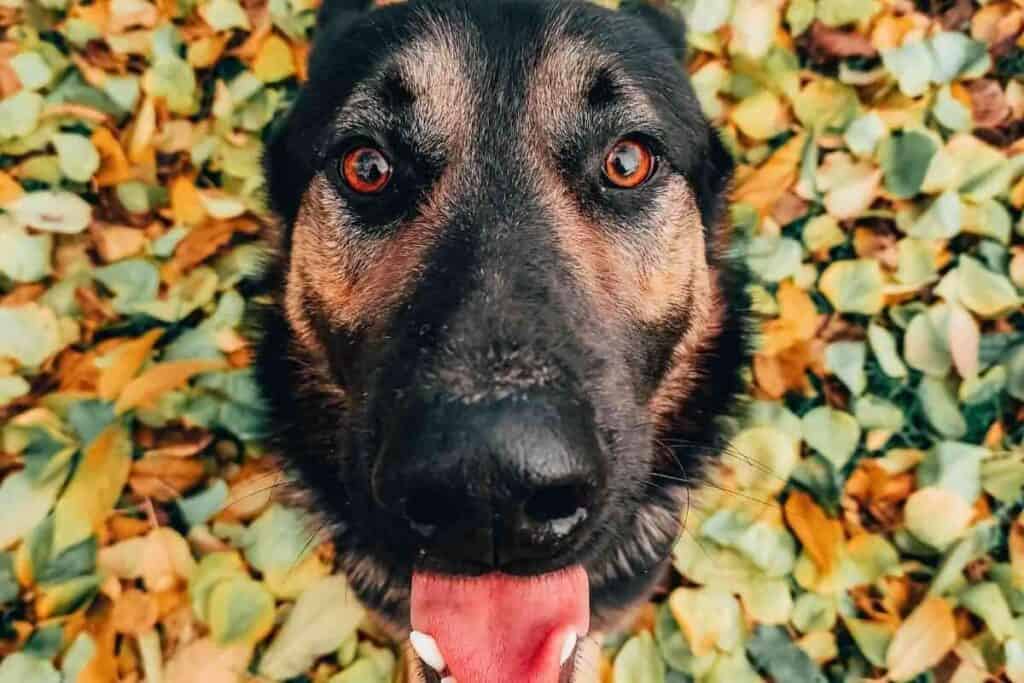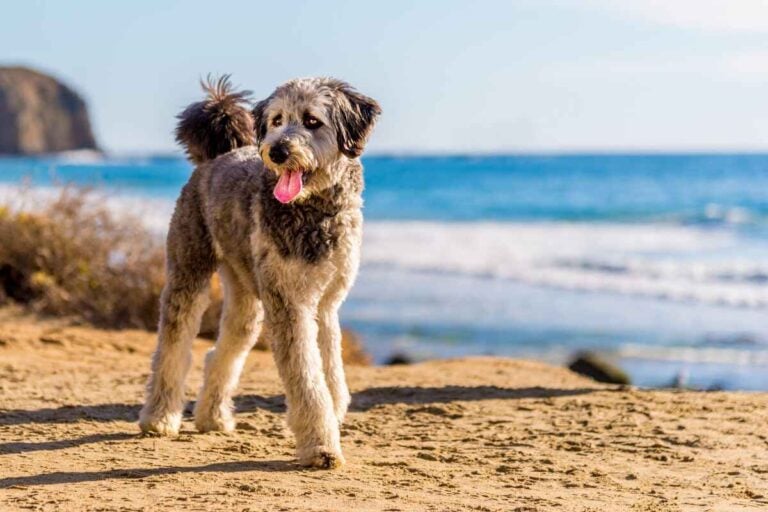Why Does My German Shepherd Smell Like Fish? (And How to Fix it)
Owning a German Shepherd comes with many surprises.
Most of them are good, but you might find yourself with some interesting surprises when you are a dog owner.
One common thing people wonder about is why their German Shepherd smells like fish.
This might seem like a weird question, but it’s actually quite common when it comes to German Shepherds.
Knowing the causes and the treatment are very important though.
Why Does My German Shepherd Smell Like Fish? (And How to Fix it)
In German Shepherds, commonly smell like fish because they are having too many secretions from their anal glands. They might also have a disease from their anal glands that is causing an unpleasant odor. They could also have anal sac tumors or an infection in the anal glands.
Some of the reasons for your dog smelling like fish are serious and need prompt medical attention.
If you have noticed the smell coming from your dog for a long time, you might also need to take them to the vet right away to ensure they are in good health.
What Are Anal Glands?
Before diving into the problems your dog can have with their anal glands, let’s discuss what anal glands are so you understand them and how they can become an infection in your dog.
Anal sacs or glands are located on both sides of your dog’s anus.
They have sweat glands in them that produce smells and act as a scent marker for your dog.
These secretions will also pass into their feces.
The smells produced are important to dogs as they give information to one another.
This is why you might see your dog smelling other dogs’ poop.
This is also why dogs smell each other’s butts and tails.
While the secretions and smells that from a dog’s anus are always unpleasant, you shouldn’t be able to smell them.
So, you smell a fishy odor, there is a chance something is wrong with your dog’s glands that need to be investigated.
What Are the Common Reasons for My German Shepherd to Smell Like Fish?
There are many reasons your German Shepherd might smell like fish, but they all involve the anal glands.
If you take this complaint to your doctor, the first thing they will usually do is check their glands.
They might also run some additional tests if they see signs of infection or disease.
Impactions
This happens when the anal sac is not emptied completely and the fluid inside becomes dry.
This can lead to painful and smelly impactions.
The sacs will feel hard to touch, so the vet or doctor might inspect them and touch them to see.
A thin pasty brown substance will also come out of them.
Impactions can turn into abscesses, so you need to make sure your dog gets medical care right away.
Obese dogs are more likely to have impactions because their sacs are harder to empty.
Impactions can also happen from stool that is too soft, or your dog might have an abnormality that causes their sacs not to function properly.
Infections
Infections in anal glands can be common and they can also cause abscesses. The sacs will be very painful, and they might be discolored and swollen.
Abscesses can also rupture the skin and cause tremendous pain.
Abscesses need prompt medical attention and should not be left untreated.
Always take your dog to the vet if you think they have an abscess.

Anal Sac Tumors
Tumors will make your dog’s anal glands firm and enlarged.
Sometimes though, a tumor will not show any signs or symptoms.
If your dog smells like fish but doesn’t seem to have any physical problems with its anal glands, the doctor might do a biopsy or an ultrasound.
All the problems listed above are considered to be anal sac diseases.
Sometimes they are very obvious, while other times you might not know your dog is having any issues until you take them to the vet because they have a strong fishy odor.
What Symptoms Do Anal Sac Diseases Have?
Some anal sac diseases have no symptoms, while others will cause you to take your dog to the vet right away.
It’s always a good idea for your dog to get regular vet checkups though to prevent any problems from occurring.
You also are on the lookout for some symptoms of anal sac diseases to help your dog before the problem gets too serious.
If your dog’s anal sac is irritated, you might see them scooting on the floor or biting and licking their anus often.
They might also have trouble pooping and they might cry or whine when they are pooping to show they are in pain.
If you feel the area around the anus, you might feel a hard lump. You might also have pus or blood in the stool.
Make sure your dog also doesn’t have any discoloration around the anus as this could be a sign of anal disease.
Sometimes dogs get anal sac disease randomly or for no reason.
There are some risk factors though that make it more likely for your dog to have issues including:
- Being overweight obese
- Food allergies
- Environmental allergies
- Hypothyroidism
- Skin mites
- Bacterial and yeast infections around the skin
How Can I Fix My Dog’s Fishy Smell?
If you notice a fishy smell, contact the vet right away as you want to be able to rule out any serious problems.
Sometimes the dog might just need their glands emptied at the doctor’s office to make sure they are completely empty.
This should take away the smell.
Some dogs might need their anal glands manually emptied several times a year.
This is a normal part of vet care and grooming if your groomer knows how.
Make sure they are not doing it too often though as it can cause inflammation and scar tissues to build up if it’s being sone when not completely necessary.
The vet may need to treat impacted anal sacs with a saline rinse and medicine to soften the sacs.
You might also need to switch your dog’s food to something with more fiber so they can have bowel movement easier without too much straining.
At home, you can use anal gland wipes or supplements to make sure your dog is healthy and its glands are always clean.
Make sure you are always buying from a reputable brand though and ask the vet for advice before buying one.
In many cases, your vet might need to remove the anal sacs completely.
This is often the treatment method when it comes to anal sac tumors.
How Can I Prevent Anal Sac Disease In My Dog?
Unfortunately, anal sac disease is not always preventable.
You might do everything you’re supposed to do and your dog might still experience issues with its glands.
However, practicing the following tips will ensure your dog is less likely to get anal sac disease.
It will also make it easier for your dog to have bowel movements and will make their overall digestive system healthier.
Always make sure your dog is getting the right amount of food and good quality food.
Always ask the vet about food recommendations and ways to make sure your dog is eating healthy.
If your dog has had anal gland issues in the past, your vet might recommend a special diet for our dog.
Keeping your dog at a healthy weight will also ensure they are less likely to get anal sac diseases.
You can do this by taking them to get exercise regularly and ensuring they are getting a balanced diet.
Make sure your dog is also drinking enough water.
Make sure you are keeping their water bowl clean and giving them fresh water.
If you live in an area with unclean water, consider giving your dog purified water to make sure they don’t catch any diseases.
You should also check your dog’s stool periodically to make sure it’s formed well. This means not too hard and not too soft. Either can cause anal sac disease.
The good news is that anal sac diseases can be treated easily at your dog’s vet office.
The sooner they are taken for treatment, the easier it will be to make sure the problem goes away.
Final Thoughts
Your German Shepherd smelling like fish is more than just annoying unpleasant, it can also signal an underlying medical condition.
Most of these conditions will need prompt medical treatment as they are not able to be treated at home.
The one exception is anal gland emptying.
You can learn to do this on your own as long as you don’t mind the smell and you have the proper tools.
You can also use anal wipes, but your dog might still need medical attention to get rid of the underlying problem.
As soon as you notice a fishy smell, contact the vet right away.






